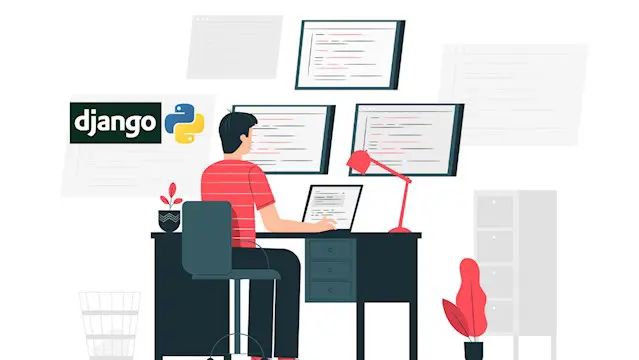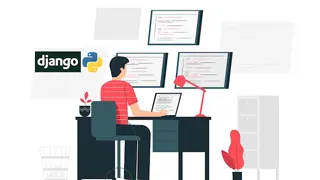
Django Framework (basic to advanced)
Self-paced videos, Lifetime access, Study material, Certification prep, Technical support, Course Completion Certificate
Uplatz
Summary
- Certificate of completion - Free
- Reed courses certificate of completion - Free
Add to basket or enquire
Overview
Uplatz offers this comprehensive course on Django. It is a self-paced course with video lectures. You will be awarded Course Completion Certificate at the end of the course.
If you are a web developer or aspiring to be one then it is prudent that you learn about all the latest web frameworks that will help you develop successful web applications. A framework that is fast gaining popularity is Django. What makes Django popular is that it is built on Python—a language known for keeping code clean and seamless. This makes the Django code robust and reusable, enhancing productivity and quality. Our Django course will teach you the core concepts of Django, starting from the basics and moving towards the advanced. You will learn how to make your web applications a success by maintaining code, increasing reusability, fixing bugs, and using effective template and interface systems by attending our Django classes. Our Django course is one of the few to teach deployment – necessary for making your webapps accessible on the web, and crucial for securing work as a developer.
Django is a widely-used Python web framework that allows you to quickly develop scalable, secure, production-quality web applications. Created to enable rapid development and iteration, Django webapps can handle infinite amounts of users and data, easily add new features, integrate with RESTful APIs, utilize machine learning/AI, and much more.
Developers love using Python because it’s easy to read, write and learn, as well as robust and scalable.
In Uplatz Django course you will learn :
- Understand Django fundamentals and use its concepts to build and deploy robust web applications and apps.
- Learn how to configure Django to liaise with powerful databases and create the Django admin interface.
- Learn about Django URL patterns and views and deploy Django applications.
- Learn about Django’s security implications and how to create safe web applications with it.
Curriculum
Course media
Description
Django Python Web Framework – Course Syllabus
- Django Introduction
- Django Installation
- HTML5
- CSS
- JavaScript
- jQuery
- Bootstrap
- Creating Project in Django
- Creating Applications in Django
- Working with Views
- Function Based Views
- Class Based Generic Views
- Working with Files
- Working with Template Files
- Working with Static Files
- Injecting dynamic content from View to Template
- Django Template Language
- Working with Admin Interface in Django
- Admin Interface
- Django Admin Customization
- Working with Models
- Form Handling in Django
- Redirecting in Django
- Sending Emails in Django
- Working with different Types of Http Methods
- CRUD Operations using Web API without REST Framework
- Django REST API
- Database API
Who is this course for?
Everyone
Requirements
Passion and determination to achieve your goals!
Career path
- Full Stack- Lead Software Developer (Python/Django)
- Python/Django Developer
- Backend Developer - Django/REST
- Software Engineer-Python
Questions and answers
Currently there are no Q&As for this course. Be the first to ask a question.
Certificates
Certificate of completion
Digital certificate - Included
Course Completion Certificate by Uplatz
Reed courses certificate of completion
Digital certificate - Included
Will be downloadable when all lectures have been completed
Reviews
Currently there are no reviews for this course. Be the first to leave a review.
Legal information
This course is advertised on reed.co.uk by the Course Provider, whose terms and conditions apply. Purchases are made directly from the Course Provider, and as such, content and materials are supplied by the Course Provider directly. Reed is acting as agent and not reseller in relation to this course. Reed's only responsibility is to facilitate your payment for the course. It is your responsibility to review and agree to the Course Provider's terms and conditions and satisfy yourself as to the suitability of the course you intend to purchase. Reed will not have any responsibility for the content of the course and/or associated materials.


